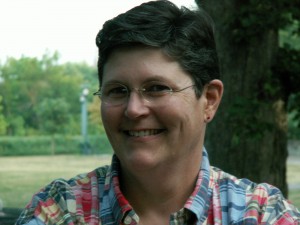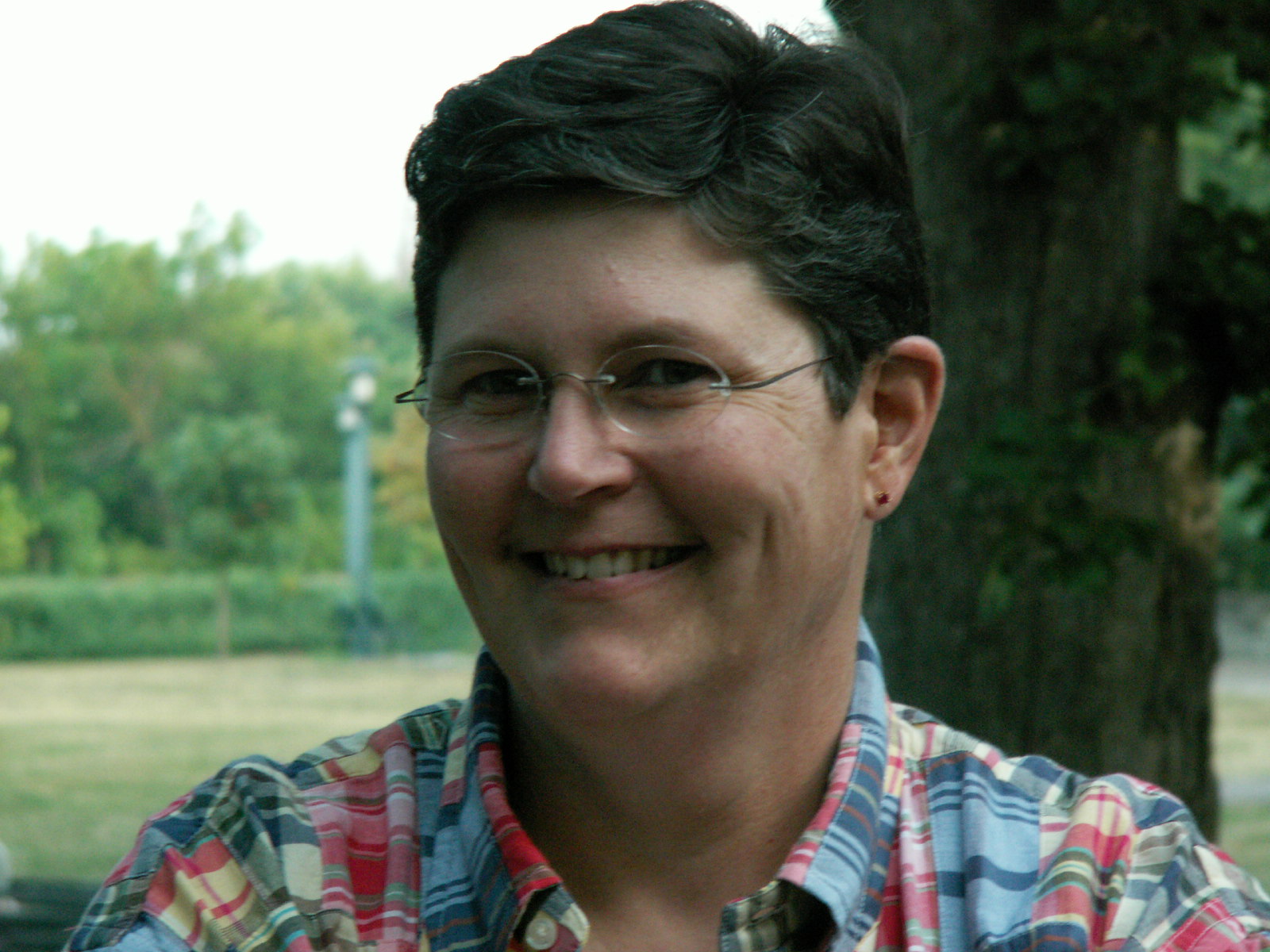ON MARRIAGE – by Anita Bradshaw
 Read Elena Larssen’s Essay, “An Amazing Year for Marriage”
Read Elena Larssen’s Essay, “An Amazing Year for Marriage”
Read Kaji Spellman’s Essay, “Losing the Gift of Singlehood?”
Read Douglas Donley’s Essay, “On Marriage”
I have a confession: weddings are my least favorite pastoral duty. I have had some of the worst experiences. A couple of quick stories:
There was the couple that kept failing to show up for pre-marital counseling sessions. Then they called to say that the caterer, the reception hall, the invitations, the outfits, etc. were so expensive, couldn’t I cut my fee? It was a whopping $150.00. Then I learned through an acquaintance of theirs that one of them was an alcoholic who physically and emotionally abused the other. I called them and said I would not do the wedding. They said I had to and that I better show. I said, “Watch me not be there.”
Or then there was the couple that was drunk when I arrived at the yacht club where the wedding and the reception were to be held. I got them sobered up only to go down for the wedding and discover that they had arranged a bar for the wedding guests and the guests were all fairly drunk by the time we started the ceremony.
Or the couple who called and asked about my availability for a particular date and I said I was out of town, happy to do the wedding, but we would have to find another date. “No,” they said, “It has to be this date.” “No,” I said, “I can’t do it then.” Finally, they admitted that they had already printed the invitations and put my name on them as the officiant. They had gotten the reception hall, caterer, and band they wanted and figured I would just cooperate and the church would be available. I could continue, but I will spare you. It doesn’t get any prettier.
The inherent consumerism of our culture has taken over the whole wedding business. Couples are spending a fortune on dresses, tux, caterers, bands, receptions, etc. They start their married lives in tremendous debt and all for a day. Now, don’t get me wrong, I love a good party, but is this sort of expensive, and in many cases, excessive partying, what we mean when we talk about Christian marriage?
Consumerism drives the church to the backseat. Couples rarely start with the minister and the church. They start with all the other folks they need to hire. That makes me question if marriage truly is a religious institution and how much the commitment before God and the community really matter for many couples. Are the blessing of God and the support of community the point of the ceremony? Or is it a quick stop on the way to the real event and “Oh, don’t forget to sign and file the marriage license so all this is real and official?” Or as some have described the job of the church and the clergy is to “match, hatch and dispatch.”
After the United Church of Christ passed a resolution calling for marriage equality in 2005, the congregation I was serving held discussions to decide whether we would continue to sign marriage licenses. In one of the discussions about marriage equality, I asked, “Which is the real marriage – the church ceremony or the marriage license? The group, somewhat reluctantly, responded the marriage license was the real marriage. Even amongst good and faithful people, the civil marriage is the most important. The more we talked, the clearer it became that people didn’t know what marriage was outside the civil dimensions. We talk about Christian marriage, but do we really know what that is?
I first began to think seriously about all of this after a phone call I got from my attorney, asking my advice for an elderly couple working with her. Both were widowed and had fallen in love. They wanted to marry, but could not legally. If they legally wed, they would lose their pensions from their respective deceased spouses. They went to their minister and ask if they could marry in the church, but without a marriage license. He said he had to sign the license. Being of an age and a set of values that kept them from living together, they had sought advice from an attorney. I suggested they go back to the minister and tell him that he is not legally bound to sign a license for the state to hold a service of blessing in marriage for the couple. They could marry in the church without marrying in the state. And if he would not do the service, I would. That experience propelled me toward a reassessment of marriage and its religious value as opposed to its civil value. It also taught me how “wedded” to being agents of the state we ministers have become.
I have always believed in the separation of church and state, but when I became ordained, I had to register with the state and become their agent when signing marriage licenses. I have increasingly become disenchanted with being an agent of the state especially when in so doing I feel as if I am violating my own rights as a lesbian person and as an ordained minister who is not allowed to honor the marriages of all couples I serve. We have judges, justices of the peace and other magistrates to represent the interests of the state. I represent the interests of the community of faith and of God.
By now, you are probably wondering why I am in this business. Let me be clear that I do believe in marriage, both in a religious sense and in a civil sense. It is an important institution for many reasons and I see no difference between marriage between a man and a woman or two men or two women. It is still marriage – a committed mutual relationship between two people seeking to live daily the love they have experienced. And in the church, it is a covenant relationship binding the couple to one another and to God. A few of the reasons I believe marriage is important and necessary are:
- Marriage is one of the crucial ways that we experience the incarnational love of God. We come to know how much God loves us through the love of the other and particularly in a committed love that is deep and intimate.
- Marriage is one the important avenues through which are able to grow and mature as persons. Through the day-to-day living with another and struggling and helping them to grow and flourish, we come to understand who we are and who we are called to be as persons.
- Marriage is an important institution for stabilizing our lives and that of the wider community. It helps to create order so that we all may live better.
- Marriage provides a stable environment for children to grow and mature and prosper.
- Marriage can be a wonderful and joyous relationship when it seeks not its own, but the good of the other which, of course, is something we are also called to do in Christian community.
I believe the faith community must reclaim marriage from a consumerist culture and from political ideologies. Marriage is too important to be used as a political football. It is too important for the church to keep playing handmaid to the state on the issue. It is too important to hand it over to the various industries that want to make money off of it. It is too important for us not to clarify what we mean as a church about marriage and what marriage should be. It is fundamentally a religious institution for people of faith and a secular, civil institution for all citizens. The two have been confused too long and need to be separated, if we are ever to reclaim the religious institution of marriage.
Anita L. Bradshaw is a consultant working with congregations, judicatories, denominations and non-profits. She is an ordained Minister-in-Covenant with Mayflower Community Congregational Church, United Church of Christ in Minneapolis, Minnesota. She has served as faculty and staff for several universities, colleges and seminaries, including Yale University Divinity School. She is currently engaged in a research study of virtual church under the auspices of Chicago Theological Seminary. She holds two advanced degrees from Yale University in theology and a Doctor of Philosophy degree from Luther Seminary in St. Paul, Minnesota.


The first part of this essay sounded like something I hear at every clergy gathering, and it has begun to disturb me. Are weddings a hassle — do they take us out on a Saturday and force us to deal with people caught up in their sin? Why yes of course, but what do we think the gospel is for? Just for people with all the right values and behavior who never cause us problems? Churches complain and complain about not having any young adults or families — how many consciously strive to make a ministry for young people that is very much needed? How many of our clergy get extra training so they can actually help couple– by offering real pre-marital counseling? How many have even one decent wedding sermon? Mostly, we regard weddings as unpleasant hassles we’re forced to endure, instead of the fact that it may be the one experience of church that a couple of hundred people will have in that decade of their lives.
Consumerism is the sin du jour, perhaps, in another time, it might be racism, sexism, — what else might we see when we head to the altar with a young couple? Isn’t that why its important that we do it?